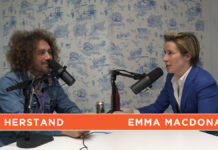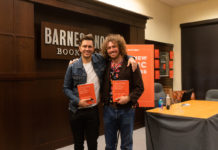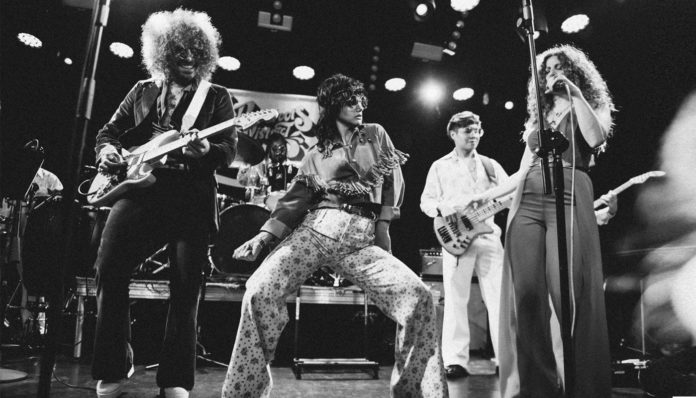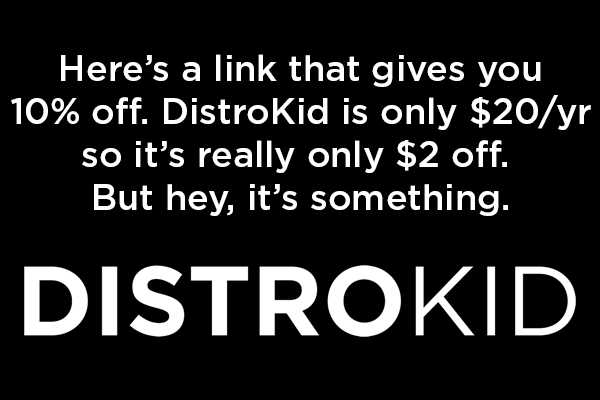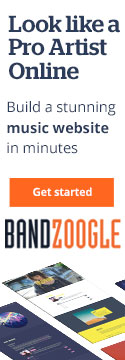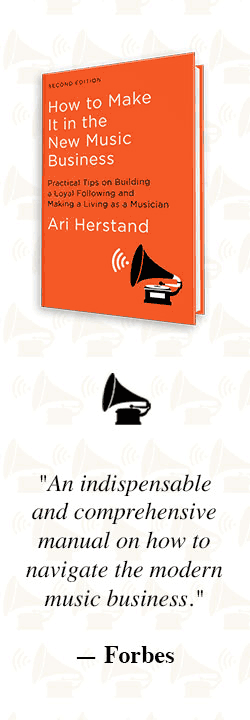Your bio is your story.
It should reveal why people should care about you. What sets you apart? Why are you unique? And if you have a new album, what is the album’s story?
+Why No One Cares About Your Music
Make sure you have three bios: a long one, a short one (1 or 2 paragraphs, definitely under 500 words) and an elevator pitch. Make sure every bio includes pronunciation of the name. Your bio should be written in the third person.
Your long and short bios can be on your website. The elevator pitch is not mean to be written anywhere, but just for you to think about. More on this below.
Your long bio can be structured like this:
Quote
Start the bio off with a quote from a band member or press outlet or a lyric from one of your songs. Something that will set the tone and is completely indicative of what your project is about.
Hook
The hook is your story. What makes you unique. Sets you apart from everyone else. Open with this. It doesn’t need to be more than one or two paragraphs. Make sure that your hook is in line with the vibe and energy of you, the artist. No sense in mentioning tragedies you’ve been through if it has nothing to do with you, the artist and what your project is all about. The hook is the first thing that everyone will tell their friends when introducing them to your music. This is your artist-story. What is the biggest thing that stands out about you (right now)? What do you want people to know about you the artist (not the person, necessarily). Why is your project special?
Whatever your artist-story is, it should feel like your music and feel like the energy of your show, photos, socials, videos, everything. Have you overcome personal obstacles (that directly led to you becoming a musician)? Are you an arena football player? Are you an avid reader of fantasy novels (and now you write fan fiction songs)? Is your great-uncle John Coltrane?
It’s the “he was discovered while busking on the streets of L.A. and now has chart-topping radio hits.” The “she was the #1 musician on YouTube, but then a major label took it all away, and now she’s getting it all back.” Bon Iver’s northern-woods-of-Wisconsin-cabin-in-the-winter recording. Marshmello’s secret identity. Your story will of course evolve as you evolve and your career grows. But, right now, come up with something that sets you a part from everyone else, but most importantly, is in line with your artist ethos and sound.
I swear to Moses if you start your band bio off with “Johnny Smith picked up the guitar at a young age and met Tammy Johnson in high school who picked up the bass at a young age and they formed a band to take over the world” I’m going to drive to your place, knock on your door and politely ask to vomit in your sink. These kinds of bios are so bland they’re nauseating. You, as people have a million different stories. But what is the ONE story about your project that you want everyone to talk about (at least for now) that is interesting? That’s your hook.
Use this hook in your press release and everywhere else.
+How To Write a Press Release (And Get Press)
Accolades
Move right into discussing your accolades. Once your hook intrigues your readers, your accolades showcase that you are an artist on the rise, worth paying attention to.
Newest Project
This is where you talk about your latest project. Most of the time it’s the newest album. But you can also discuss music videos, tours or anything else that you’re currently working on.
The Boring Stuff: Backstory, Influences, Song Meanings
This section is primarily for your die-hard fans who want as much possible information about you and for journalists doing their research. You don’t need every band members’ birthplace, but include interesting, pertinent information about how members met, how the band was formed and career highlights. You can also include some of your influences, back stories on songs on the record or any other interesting info.
Your short bio should just have your hook, accolades and newest project. You don’t need any of the backstory.
The Elevator Pitch
Your elevator pitch doesn’t need to be posted anywhere or sent out; it’s just for you to verbally describe your band quickly and easily when people ask. You’d be surprised at how many musicians have a very difficult time talking about their own music. Pick two or three artists people say you sound like and use that. “David Bowie meets Bob Dylan.” “If Janis Joplin got into a bar fight with Sly and the Family Stone.” “If Bill Withers married Katy Perry.” “It’s Taylor Swift for grown-ups.” “Marvin Gaye meets Paul Simon in New Orleans.” “Imagine Dragons flew into The 1975 while riding Train.” We’ll stop there. And obviously reference well-known artists. It’s no use comparing yourself to an artist they haven’t heard of. By doing this, it gives them a frame of reference. You may think your sound is unlike any which came before and that you shouldn’t be pigeonholed by referencing one or two artists or genres, but believe me, you will drastically help your (potential) audience by giving them a frame of reference.
Photo is by Maya Dondonyan







